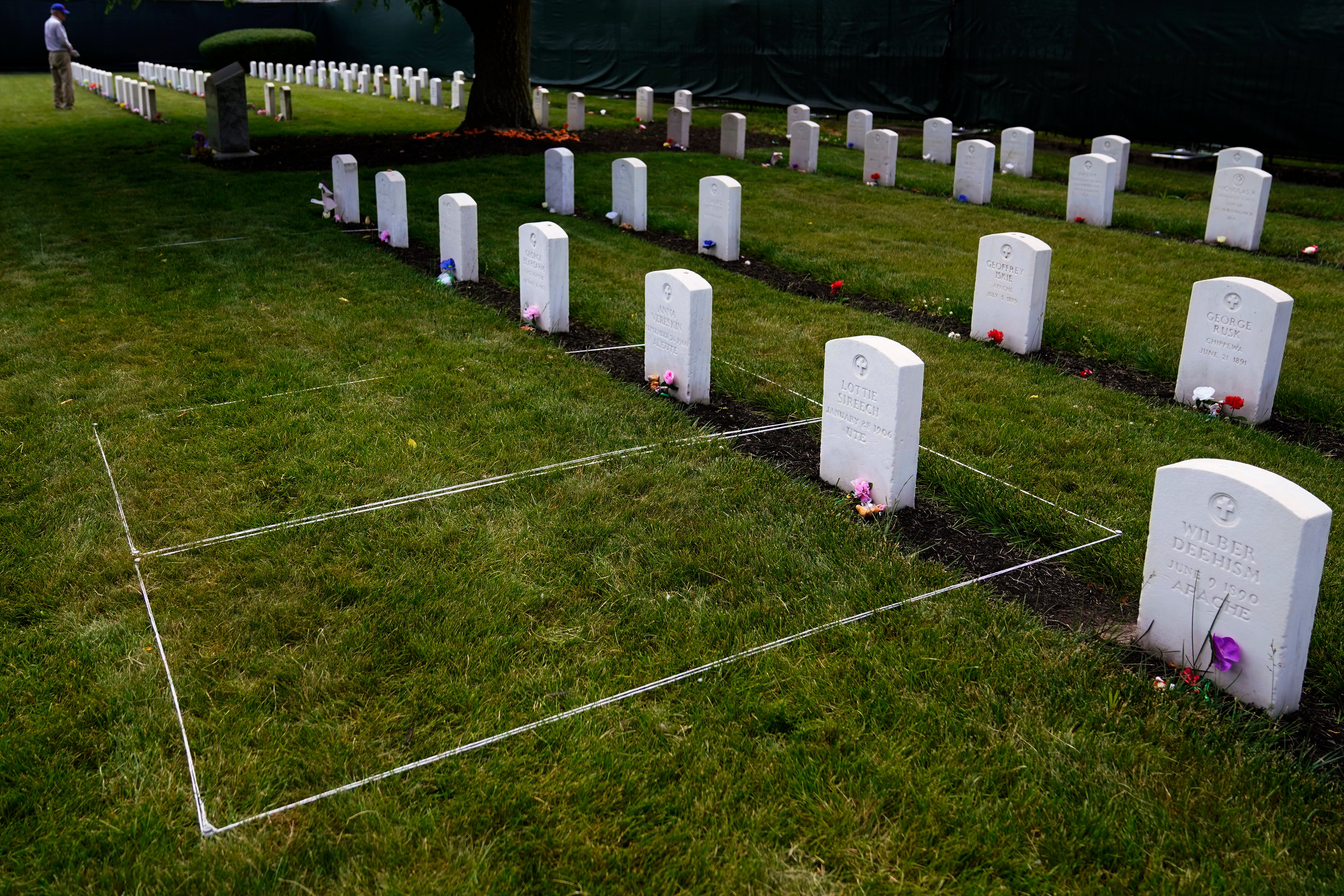Tribe urges Army to speed up return of child's 1879 remains
Federal authorities expect to return a 13-year-old boy’s remains to his Native American tribe in South Dakota this fall

Federal authorities expect to return a 13-year-old boy's remains to his Native American tribe in South Dakota this fall, they said Friday. The statement comes days after the tribe urged for a faster return of the child who died at a federal boarding school for Indigenous children in 1879.
The Sisseton Wahpeton Oyate wrote to the head of the U.S. Army's cemetery office this week, demanding movement on their effort to have the remains of Amos LaFromboise repatriated from a graveyard at the Carlisle Barracks, a military facility in Pennsylvania.
The letter from three lawyers with the Native American Rights Fund to Army Cemeteries Executive Director Karen Durham-Aguilera describes the child as the son of one of the tribe's most celebrated leaders, Chief Joseph LaFromboise, who signed an 1867 treaty that established their current reservation boundaries.
The Office of Army Cemeteries emailed a statement saying that Amos LaFromboise's disinterment was approved a year ago and that the Army also told the boy's family and the tribe's chair last summer that his remains will be returned in 2023. His disinterment will be entirely at the Army’s expense, the office said.
“The Army currently plans to conduct the disinterment of Amos this September and the required Federal Register Notice will be published in the next 60 days,” according to the statement.
The tribe argues that the Army has been requiring repatriation standards that are more demanding than those in the federal Native American Graves Protection and Repatriation Act, mandating a signed affidavit from the child’s closest living relative, which can be difficult or impossible for 19th century remains.
“Sisseton Wahpeton Oyate expected Amos to return home from Carlisle Indian Industrial School,” they wrote, “to lead his people like his father and serve as a model for future generations of Tribal leaders.”
Lawyers for the tribe said Friday their request stands to have Amos LaFromboise repatriated under the Native American Graves Protection and Repatriation Act and that the tribe is willing to discuss the next steps.
Amos LaFromboise died 20 days after his arrival at Carlisle the year the school opened. The tribe's letter says the Army has previously dug up and reburied his remains at least three times in three different locations. The Sisseton Wahpeton Oyate want to bury him next to his father on the Lake Traverse Reservation in northeast South Dakota.
Tribe historians say six children of tribal leaders were sent to Carlisle in 1879. Three of the boys died there and a fourth passed away shortly after he returned home.
At a ceremony two years ago to return nine disinterred remains of Rosebud Sioux children, U.S. Interior Secretary Deb Haaland said forced assimilation practices at Indian schools stripped away the children's clothing, language and culture.
The Carlisle school put children through harsh conditions that sometimes resulted in their deaths. Founded by an Army officer, the school cut their braids, dressed them in military-style uniforms and punished them for speaking their native languages. European names were forced upon them.
More than 10,000 Native American children were taught there and endured harsh conditions that sometimes led to death from such diseases as tuberculosis. There have been several rounds of disinterment and repatriation at Carlisle in recent years.
Bookmark popover
Removed from bookmarks